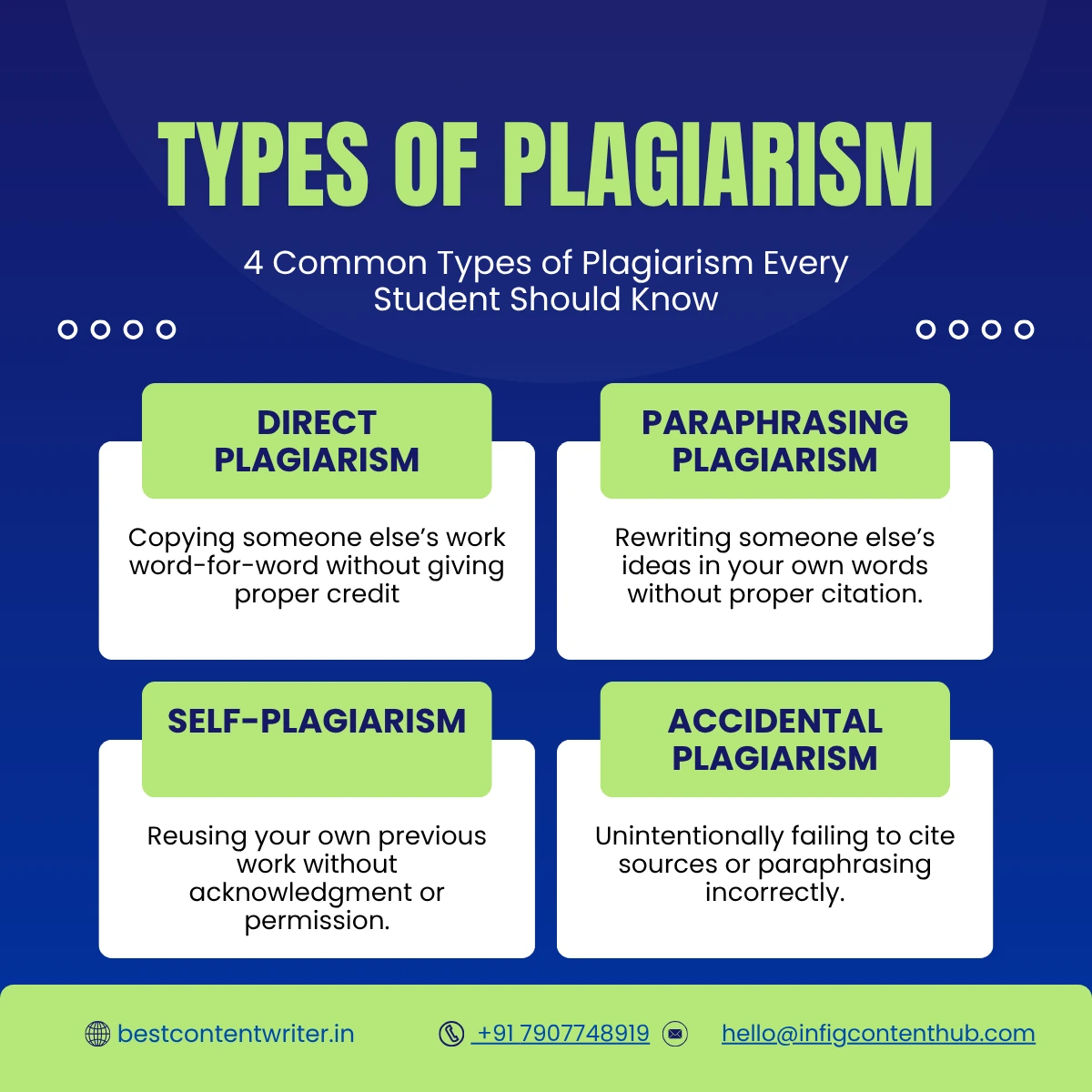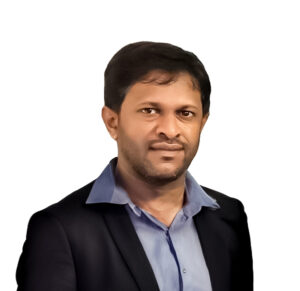When you start working on a school, college or university assignment, you will come across multiple challenges. Finding reliable sources, managing time, and writing original content. But even if you try to write the paper in your own words, there can still be chances of plagiarism. But don’t worry. In this blog, we will give you a detailed overview, plus practical steps on how to avoid plagiarism.

What is Plagiarism?
Plagiarism refers to an intentional or unintentional act of producing someone else’s work, words or ideas as your own without giving them any attribution. It is important to note that even paraphrasing or reproducing your own writing without acknowledgement can be counted as plagiarism in addition to directly copying.
Types of plagiarism
Plagiarism can appear in different forms, and understanding each type helps to take precautions and learn how to avoid plagiarism. As we can see, from directly copying someone’s words to reusing your own work, every form of plagiarism can inherently damage the originality of the content and your academic honesty.

Direct Plagiarism:
This is the most common manifestation of what is considered plagiarism. When someone copies text word-for-word from a source without crediting it, it is a plain case of direct plagiarism. It’s the most serious type because there is a clear intent to pass off others’ work as one’s own.
Paraphrasing Plagiarism:
It occurs when you restate or paraphrase someone’s ideas using completely different words or structure, but don’t take the effort or care to cite them. Even though you have rewritten it, the original thought still belongs to the original author.
Self-Plagiarism:
If you reuse a work which you have already submitted, for instance, essays or research papers, without mentioning it, it is an act of recycling the work and therefore falls under the category of self-plagiarism. In the academic context, every new submission is supposed to contain a new effort.
Accidental Plagiarism:
In academics, there is no room for negligence. So, if you forget to cite sources or wrongly quote references for the thoughts you borrowed, it can still count as plagiarism, although it was not done without your active cognisance. Therefore, it is essential to be careful with the references always.
Why Is Plagiarism Considered a Serious Issue in Academia?
Plagiarism is taken seriously in academia because it breaks trust, disrespects intellectual effort, and undermines learning. When someone plagiarises a submission, it actually stops their genuine knowledge-building efforts and damages both their personal integrity and the reputation of the institution.
How to Avoid Plagiarism in Your Assignments?
Even if you don’t invent any new ideas for presenting in your research paper, it is essential to engage honestly with any existing ones you are borrowing and express them through your own understanding. Here are some steps to guide you on how to make sure your essay is not plagiarized.
Get a thorough understanding of the topic:
Before you start writing, make sure you truly grasp what the topic demands. A clear understanding can naturally lead to or trigger original thinking and reduce the urge to copy someone’s interpretations.
Be serious about note-taking:
While researching, jot down points in your own words and mark the sources. By having organised notes, you can easily track where each idea came from and prevent unintentional copying later.
Express the ideas in your own voice:
Once you have grasped an idea and determined that it is to go within your research paper, don’t just tweak sentences but try to rebuild those ideas in your voice, backed by your own understanding, and say how you would explain them to someone else.
Give credit to your references:
Whenever you borrow facts, statistics, or ideas, don’t forget to give proper credit. Citations are a way of acknowledging the original author’s effort and show that you value being academically honesty and responsible knowledge sharing.
Use quotations wisely and when necessary:
If you think that certain phrases or sentences are too precise to paraphrase, use quotation marks and mention the source. Quoting wisely and sparingly adds authenticity without crossing into the territory of plagiarism.
Run your work through a plagiarism checker:
Before submitting, don’t forget to run your work through a plagiarism detector. Even if you are confident that you wrote honestly, checking helps identify overlapping phrases or missed citations. See it as your final chance to ensure originality.
Balance your academic workload thoughtfully:
Researches show the No.1 reason for unintentional plagiarism is rushing. When you write a research paper abruptly, you miss the chance to cite or verify sources. By planning your schedule thoughtfully, you can ensure sufficient time for research, writing, revising and cross-checking
Need Help Writing Original Assignments?
Are you struggling with writing original assignments that reflect your ideas and citing your sources correctly? We’re here to guide you every step of the way.
Get Help Now!
Conclusion
Avoiding plagiarism is about building your skills, confidence, and integrity as a writer. We hope these tips help you learn how to avoid plagiarism and feel more confident in your writing. We’d love to know how these strategies worked for you in creating original, authentic work. Try them out and share your experience or feedback with us.
Frequently Asked Questions
Understanding what is plagiarism in academic work is important before submission. Plagiarism can occur when you present someone else’s words, ideas, or data as your own without giving proper acknowledgement. Academic honesty demands citing every source you use and using original phrasing.
Ideally, there is zero plagiarism level, which is acceptable. However, we have seen that most institutions tolerate minimal overlap from common phrases. However, they would always expect you to keep originality and proper referencing.
No. Most institutions demand fresh or original work in every submission. In fact, in their understanding of how to avoid plagiarism, most students tend to ignore self-plagiarism. Always check guidelines and cite your earlier submission if allowed.
Tools like Turnitin, Grammarly, and Quetext are known to be effective in detecting overlaps. When you select a tool, look for one that can check for originality, provide detailed reports, and fall within your budget or institutional guidelines.
Read the original thoroughly, understand it, then rewrite in your own voice. After that, compare your text with the source and verify that there is accuracy. Also, whenever you paraphrase, don’t forget to add proper citations.
Yes. Even if you change the wording, it must be kept in mind that the underlying idea belongs to the original author. Therefore, proper citation is necessary to avoid plagiarism.
If your college or university work is found to have plagiarism, it can quickly damage your credibility and can even affect your academic record long-term. The consequences range from failing the assignment, losing marks, academic probation, or even expulsion.
Paraphrasing is the process of rewriting someone’s ideas in your own words with citation, while plagiarism is presenting others’ work without giving them any acknowledgement for it. Giving accurate credit is the best approach to stay within the line
No. Facts known broadly and easily verified, like historical dates or general scientific facts, don’t require citation. Cite anything that isn’t common knowledge.
If you notice a high plagiarism report after running your work through a detection tool, review the highlighted sections and rephrase properly while adding citations. Don’t submit the work until you feel it is 100% original. Work out each step we discussed on how to make sure your essay is not plagiarized earlier in this blog.

